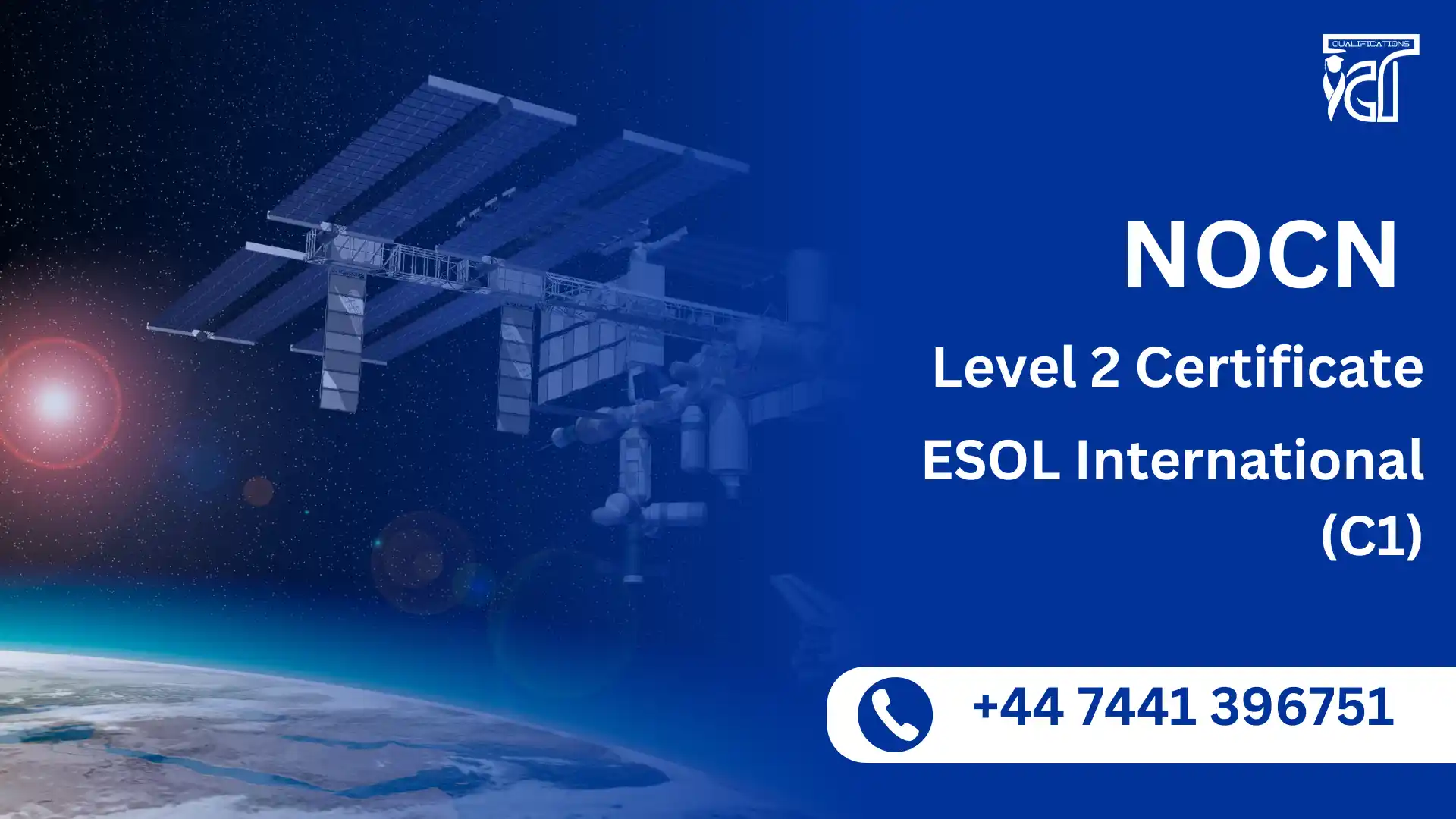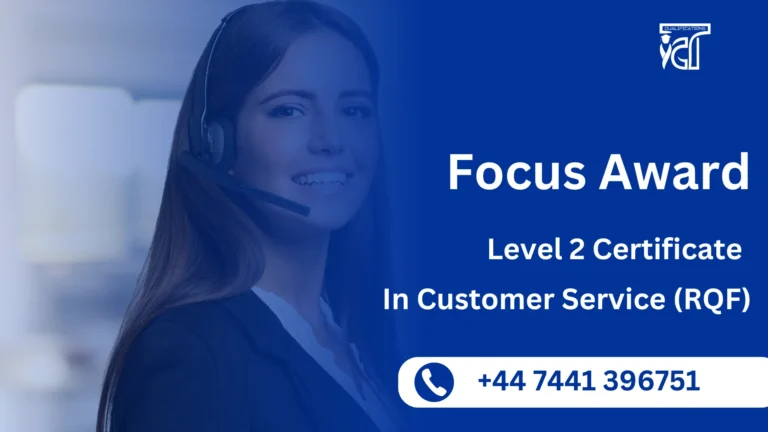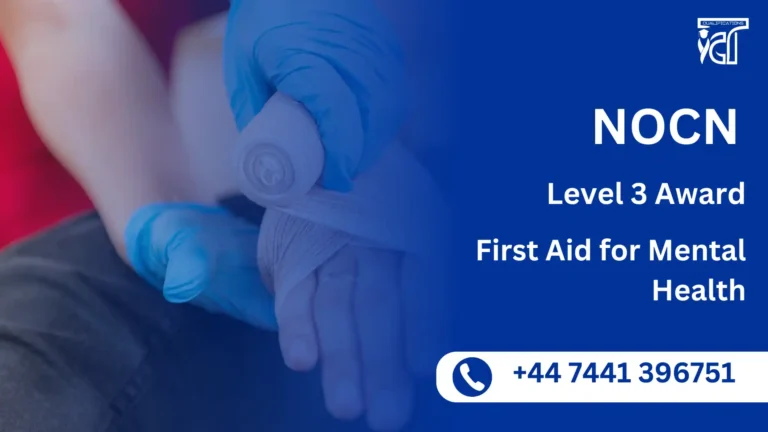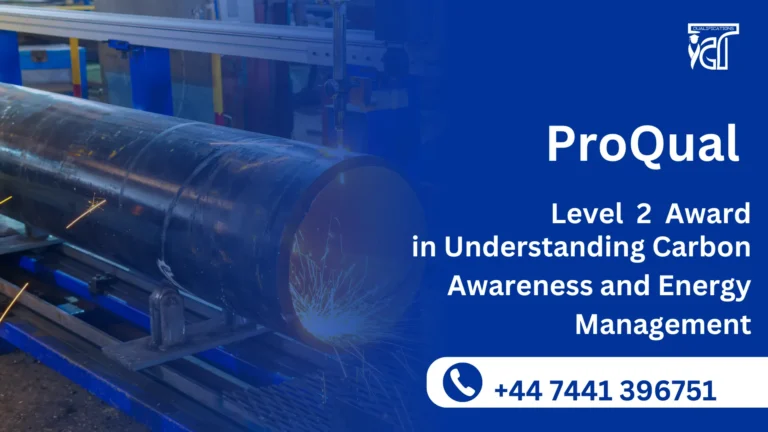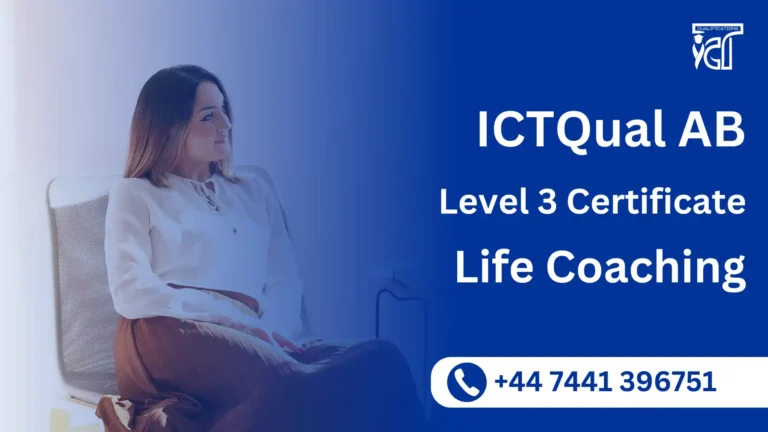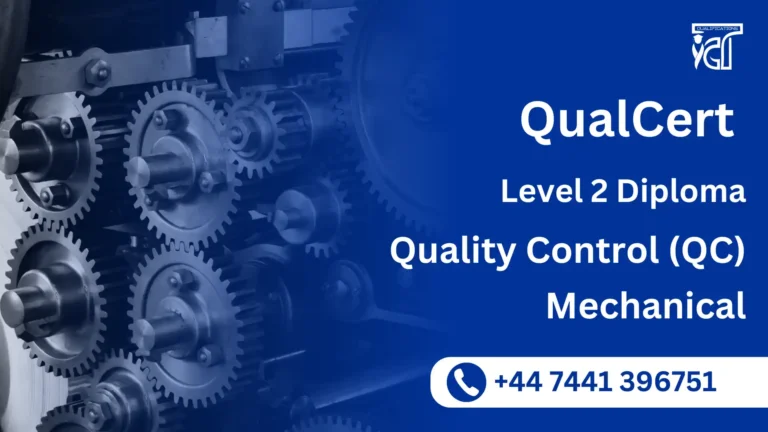In today’s globalized world, English proficiency is an essential skill for academic, professional, and personal success. The NOCN Level 2 Certificate in ESOL International (C1) provides an excellent opportunity for learners to formally demonstrate their English language ability at an advanced level. Whether you’re looking to improve your career prospects, further your studies, or gain international recognition, this Ofqual-regulated qualification offers the skills and confidence to succeed.
The NOCN Level 2 Certificate in ESOL International (C1) is designed for learners who have already reached a high proficiency in English and wish to further refine their skills. This qualification, regulated by Ofqual, aligns with the Common European Framework of Reference for Languages (CEFR) and certifies that learners possess the advanced language skills needed to function confidently in academic, professional, and social settings.
The NOCN Level 2 Certificate in ESOL International (C1) is the perfect qualification for individuals seeking to formalize their advanced English language skills and gain international recognition. Whether you’re pursuing academic excellence, career advancement, or personal growth, this Ofqual-regulated, assignment-based qualification will help you achieve your goals and demonstrate your English proficiency with confidence.
NOCN Level 2 Certificate in ESOL International (C1)
NOCN Level 2 Certificate in ESOL International (C1) program contains 300 TQT (Total Qualification Time) and 30 Credit Value.
Mandatory units
| Sr# | Unit Title |
|---|---|
| 1 | IESOL Level 2 – Listening |
| 2 | IESOL Level 2 – Reading |
| 3 | IESOL Level 2 – Speaking |
| 4 | IESOL Level 2 – Writing |
GLH (Guided Learning Hours) and TQT (Total Qualification Time) are terms commonly used in vocational qualifications to help define the amount of time a learner is expected to spend on heir studies.
1. GLH (Guided Learning Hours)
GLH refers to the number of hours a learner spends being directly taught, supervised, or supported during their course. This includes the time spent in activities such as:
- Classroom instruction
- Practical workshops
- One-on-one tutoring or mentoring sessions
- Online learning sessions with tutor support
In other words, GLH represents the time that learners are actively engaged with their instructors or learning activities.
2. TQT (Total Qualification Time)
TQT represents the total amount of time a learner is expected to invest in completing a qualification, including:
- GLH (Guided Learning Hours): Time spent on direct learning, as explained above.
- Self-Directed Learning: This includes time spent on independent study, research, assignment completion, preparation for exams, and any other work the learner does outside of direct teaching hours.
TQT is a broader measure that includes all the time required to achieve the qualification. It helps learners and employers understand the overall commitment required for the qualification.
Key Differences Between GLH and TQT:
- GLH focuses on direct learning with guidance or supervision.
- TQT includes GLH as well as independent study time and other learning-related activities.
Example:
If a qualification has a TQT of 600 hours and a GLH of 250 hours, it means the learner should spend 250 hours in direct learning (classroom, online, or tutor-led sessions) and 350 hours on independent study or research.
Learning Outcomes of NOCN Level 2 Certificate in ESOL International (C1)
IESOL Level 2 – Listening (C1)
- Understand a wide range of spoken language, including complex discussions, lectures, and conversations on a variety of topics.
- Comprehend implicit meaning, tone, and nuances in spoken English, even in situations where language is used indirectly or figuratively.
- Identify key points, arguments, and detailed information from extended speeches or audio recordings in both familiar and unfamiliar contexts.
- Demonstrate the ability to follow and respond to rapid conversations and dialogues, including technical and abstract content.
IESOL Level 2 – Reading (C1)
- Understand a variety of complex, detailed texts, including both factual and abstract content, such as academic articles, professional documents, and literary works.
- Identify implicit meaning, tone, and the author’s intent in longer, more intricate passages.
- Critically analyze and evaluate written material, extracting relevant information and forming opinions based on evidence.
- Apply advanced reading strategies to understand and interpret diverse types of written texts in different formats (e.g., reports, advertisements, essays).
IESOL Level 2 – Speaking (C1)
- Express ideas fluently, clearly, and accurately in extended conversations, discussions, and presentations.
- Present complex information effectively, tailoring language and register to the audience and context.
- Respond appropriately to unpredictable or challenging questions and viewpoints, demonstrating flexibility and critical thinking.
- Use a wide range of vocabulary, idiomatic expressions, and structures to convey meaning with precision and clarity in formal and informal settings.
IESOL Level 2 – Writing (C1)
- Produce clear, detailed, and well-structured written texts on complex subjects, showcasing strong organizational skills and cohesive writing techniques.
- Write effectively for a variety of purposes and audiences, adjusting style, tone, and format as necessary.
- Demonstrate the ability to express complex ideas and arguments clearly, using accurate and sophisticated grammar and vocabulary.
- Proofread and edit written work, ensuring high standards of accuracy in spelling, punctuation, grammar, and structure.
Course Benefits of the NOCN Level 2 Certificate in ESOL International (C1)
1. Globally Recognized Qualification
The NOCN Level 2 Certificate in ESOL International (C1) is an Ofqual-regulated qualification, ensuring its recognition worldwide. This certification demonstrates your advanced English proficiency and is accepted by universities, employers, and institutions globally.
2. Enhanced Career Opportunities
Achieving a C1-level qualification significantly improves your employability. With this certificate, you’ll meet the language requirements for high-level professional positions and have a competitive advantage in international job markets, particularly in English-speaking countries.
3. Academic Excellence
This qualification is ideal for international students aiming to meet university language requirements. It provides formal proof of your advanced English skills, allowing you to pursue higher education with confidence in an English-speaking environment.
4. Flexible Learning Path
The qualification is assignment-based, offering learners the flexibility to complete tasks at their own pace. This method allows for personalized learning and reduces the stress often associated with exams.
5. Boosts Communication Skills
By mastering advanced speaking, listening, reading, and writing skills, learners can engage effectively in professional, academic, and social settings, ensuring success in diverse English-language environments.
6. Personal Development
Achieving the NOCN Level 2 Certificate in ESOL International (C1) boosts your confidence, helping you communicate fluently and accurately in a variety of real-world scenarios.
Ideal Learner for the NOCN Level 2 Certificate in ESOL International (C1)
1. Non-Native English Speakers
The NOCN Level 2 Certificate in ESOL International (C1) is designed for non-native English speakers who have reached a high proficiency level in the language and wish to formalize and advance their skills to the next level. Ideal candidates typically have a B2-level English proficiency or equivalent.
2. International Students
The course is particularly suited for international students planning to study in English-speaking countries. By achieving the C1 level, learners can meet the language requirements for university admissions and ensure they are prepared for the academic demands of higher education in English.
3. Working Professionals
Professionals seeking to advance in their careers can benefit from the NOCN Level 2 Certificate in ESOL International (C1). This qualification proves their ability to communicate fluently and effectively in a wide range of professional settings, making them more competitive in global job markets.
4. Adult Learners Seeking Personal Development
This course is ideal for adult learners who want to enhance their English language skills for personal growth, travel, or integration into English-speaking communities. The flexible, assignment-based approach makes it accessible to those with busy schedules.
5. Motivated and Committed Learners
The ideal learner is someone motivated, self-disciplined, and ready to engage in rigorous language learning through assignments, demonstrating their advanced language proficiency in real-world scenarios.
Entry Requirements
Register Now
Qualification Process
Qualification Process NOCN Level 2 Certificate in ESOL International (C1)
- Self-Assessment:
Begin by evaluating your eligibility to ensure you meet the qualification requirements, including work experience, knowledge, and language proficiency. - Registration:
Complete your registration by submitting the required documents, including a scanned copy of a valid ID, and paying the registration fee. - Induction:
An assessor will conduct an induction to confirm your eligibility for the course and explain the evidence requirements. If you do not meet the criteria, your registration will be canceled, and the fee will be refunded. - Assignments & Evidence Submission:
Provide all assignments and the necessary evidence based on the assessment criteria outlined in the course. If you are unsure of the required evidence, consult with the assessor for guidance on the type and nature of evidence needed. - Feedback and Revision:
The assessor will review your submitted evidence and provide feedback. Evidence that meets the criteria will be marked as “Criteria Met,” while any gaps will be identified. You will be asked to revise and resubmit if needed. - Competence Evidence:
Submit final evidence demonstrating that all learning outcomes have been met. This evidence will be marked as “Criteria Met” by the assessor once it is satisfactory. - Internal Quality Assurance (IQA):
The Internal Quality Assurance Verifier (IQA) will review your evidence to ensure consistency, quality, and compliance with standards. - External Verification:
The IQA will submit your portfolio to NOCN External Quality Assurance Versifier (EQA) for final confirmation. The EQA may contact you directly to verify the authenticity of your evidence. - Certification:
Upon successful completion of all checks, NOCN will issue your official certificate, confirming that you have attained the NOCN Level 2 Certificate in ESOL International (C1)

